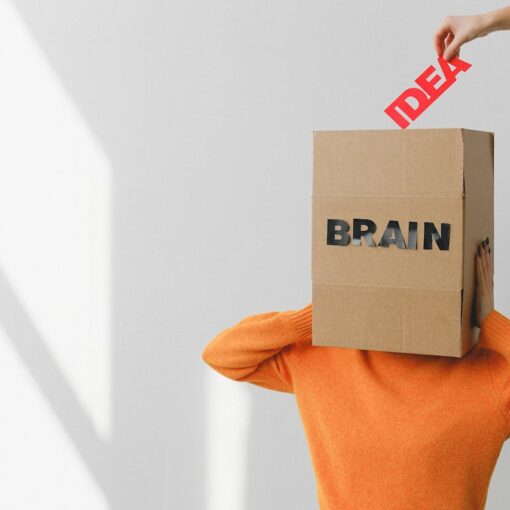
- Search Search Search …
- Search Search …

Critical Thinking for Self-Improvement: A Guide to Unlocking Your Potential

Critical thinking plays a significant role in self-improvement as it allows individuals to analyze information, question assumptions, and make informed decisions. By adopting a mindset that encourages curiosity and inquisitiveness, one can enhance problem-solving abilities and personal growth. In a rapidly changing world, the need for continuous learning and adaptability is crucial, and critical thinking paves the way for better judgment and resilience during challenging situations.
Understanding the importance of critical thinking in everyday life is essential as it helps us to effectively navigate through interpersonal relationships, decision-making, and problem-solving. Developing these skills requires practice and dedication, as well as the ability to identify personal biases and assumptions that may impede the process. By engaging with diverse perspectives and striving to challenge one’s mindset, it becomes possible to experience self-improvement and personal growth.
Practical application of critical thinking skills involves continuous reflection and evaluation of one’s thinking processes. As individuals begin to dissect their thoughts, beliefs, and actions, a deeper understanding of self-improvement emerges. Embracing the challenges associated with the development of critical thinking allows for a more mindful and empowered approach to personal and professional growth .
Key Takeaways
- Critical thinking enhances self-improvement by promoting better judgment and decision-making abilities.
- Recognizing the importance of critical thinking in everyday life enables individuals to navigate complex situations more effectively.
- Practicing and reflecting on critical thinking skills facilitates personal growth and lays the groundwork for continuous self-improvement.
Understanding Critical Thinking
Nature and purpose of critical thinking.
Critical thinking is a valuable skill that enables individuals to effectively analyze and evaluate information, allowing them to make informed decisions and solve problems. It involves the use of logic and reasoning to systematically break down arguments, identify biases, and assess the validity of claims. The purpose of critical thinking is to promote intellectual empathy, confidence in reason, and help individuals navigate the complexity of human irrationality.
In the realm of art, critical thinking skills can enhance one’s appreciation and understanding of a piece, as well as the artist’s intentions and the context in which the artwork was created. It’s essential to approach art with an open mind, questioning assumptions and exploring diverse perspectives.
Critical Thinking Skills
Developing strong critical thinking skills involves mastering several key abilities:
- Analysis : Breaking down complex ideas and arguments into their constituent parts to better understand their structure and connections.
- Evaluation : Assessing the credibility of sources, the validity of arguments, and the relevance of evidence presented.
- Logic and Reasoning : Identifying relationships between ideas, uncovering inconsistencies, and drawing logical conclusions based on available information.
- Systematical Thinking : Organizing thoughts in a structured manner, facilitating the examination of different aspects of a problem or question.
- Intellectual Empathy : Understanding and considering the perspectives of others, even when they differ from one’s own beliefs or viewpoints.
- Confidence in Reason : Trusting in the power of logic, evidence, and rational thinking, while recognizing the limits of human understanding and the potential for irrationality.
By cultivating these critical thinking skills , individuals can enhance their ability to navigate complex issues, make well-informed decisions, and contribute meaningfully to discussions and debates. These skills can be developed and refined through practice in various domains, including art, science, politics, and everyday life.
Importance of Critical Thinking in Life
Critical thinking in personal life.
Critical thinking plays a crucial role in our personal lives, as it enables us to make informed decisions by analyzing problems, evaluating information, and considering potential consequences. Developing critical thinking habits can help us become more self-guided and self-disciplined in our decision-making process. By observing our own biases and beliefs, we can challenge them and make better choices, ultimately improving our overall quality of life.
Additionally, critical thinking fosters curiosity and encourages us to question our own experiences. By being open to alternative perspectives and recognizing the limitations of our own knowledge, we can continuously learn and grow. This adaptability allows us to navigate challenges more effectively, making us better equipped to handle the complexities of life.
Critical Thinking in Economy and Science
In both the economy and science, critical thinking is essential for progress and innovation. In the economy, it enables individuals to make wise decisions regarding personal finances, investments, and career choices. It helps businesses strategically position themselves in the market by being aware of consumer preferences, competitors, and potential risks. Moreover, critical thinking promotes a more efficient allocation of resources in the economy, leading to better outcomes for all.
In the realm of science, critical thinking is the backbone of the scientific method , allowing researchers to propose hypotheses, design experiments, analyze data, and validate or refute their initial assumptions. Scientific inquiry demands that we examine our assumptions, question the validity of our observations, and challenge established theories. Thus, critical thinking fosters a culture of continuous improvement and discovery, contributing to advancements in technology, medicine, and our overall understanding of the world.
By adopting a critical thinking mindset, we can elevate our thinking, make better-informed decisions, and contribute positively to society, both in our personal lives and within the broader context of the economy and scientific pursuits.
Challenges of Developing Critical Thinking Skills
Developing critical thinking skills is essential for self-improvement, but it comes with its own set of challenges. Some of the most common obstacles are overconfidence and over-generalization, as well as common fallacies that can lead to biases and mistakes in reasoning.
Overconfidence and Over-generalization
Overconfidence is a common issue preventing individuals from thinking critically. It is characterized by an exaggerated belief in one’s own abilities or knowledge. This can lead to biases and affect decision-making, as overconfident individuals are less likely to question their own assumptions and consider alternative viewpoints. A helpful strategy to overcome overconfidence is to acknowledge one’s own limitations and actively seek feedback from others.
Over-generalization is another challenge encountered when developing critical thinking skills. This occurs when individuals make sweeping conclusions based on limited information. It can result in prejudices and uncritically accepted social rules and taboos. To combat over-generalization, it is crucial to distinguish between individual cases and broader trends, and to understand the variety and nuances within different topics.
Common Fallacies
Fallacies are errors in reasoning that can impede effective critical thinking. Two widespread fallacies are egocentrism and sociocentrism.
Egocentrism refers to the tendency to see the world through one’s own perspective only, disregarding other viewpoints. This can lead to a narrow understanding of issues and an inability to empathize with others. Developing self-awareness and practicing empathy can help overcome egocentric tendencies.
Sociocentrism , on the other hand, is the assumption that one’s own social group is inherently superior to others. This can result in biases and prejudices, as well as adherence to uncritically accepted norms and customs. To counteract sociocentrism, it is important to recognize the diversity of perspectives and values across different cultures and groups.
In conclusion, developing critical thinking skills requires recognizing and overcoming various challenges, including overconfidence, over-generalization, and common fallacies. Acknowledging and addressing these obstacles paves the way for more effective decision-making and personal growth.
Practical Application of Critical Thinking
Problem solving.
One of the main applications of critical thinking is in problem solving, as it involves evaluating various concepts, ideas, and perspectives. By honing critical thinking skills, individuals become better equipped to clarify the problem at hand, identify possible solutions, and evaluate the effectiveness of each solution. This process often includes evaluating the breadth, clarity, precision, relevance, and other standards of the solutions. Practicing and developing self-discipline can aid in making informed decisions and taking actionable steps towards solving problems.
A methodical approach in problem-solving includes:
- Defining the problem
- Generating alternative solutions
- Assessing the consequences of each solution
- Selecting the most appropriate solution
- Implementing the chosen solution
Practicing critical thinking during problem solving allows for creativity and flexibility when navigating complex issues, which is highly valued by psychologists and professionals across various fields.
Effective Communication
Another application of critical thinking lies in effective communication. Being able to understand and consider diverse perspectives can greatly improve relationships and foster productive dialogues. Critical thinking helps individuals to focus on vital questions, alternative systems of thought, and the underlying values within a given context.
In effective communication, critical thinking enables individuals to:
- Clearly articulate thoughts and ideas
- Actively listen and empathize with others
- Evaluate the validity of arguments and statements
- Question assumptions and biases
- Adapt communication style based on the audience
By utilizing critical thinking in communication, individuals can better navigate conversations, identify misconceptions, and collaborate effectively with others. Employing a confident, knowledgeable, neutral, and clear tone of voice in written or verbal communication ensures that the message is delivered effectively.
In conclusion, the practical application of critical thinking skills in problem solving and effective communication significantly contributes to self-improvement, personal growth, and overall success in various aspects of life. As individuals continue to practice and develop these skills, they will be better equipped to handle challenges, make informed decisions, and foster strong relationships with others.
Critical Thinking and Self-Improvement
Developing self-corrective thinking.
Critical thinking plays an essential role in self-improvement, as it involves rigorous standards of excellence and fairness . By skillfully analyzing, assessing, and reconstructing one’s thoughts, individuals can improve the quality of their thinking and make well-reasoned conclusions. A key aspect of critical thinking is self-corrective thinking . This involves being self-directed, disciplined, monitored, and ready to amend one’s thoughts or beliefs when presented with new information and experiences.
To develop self-corrective thinking, one must cultivate intellectual virtues such as intellectual humility, civility, and a sense of justice. By embracing these virtues, individuals can maintain a balanced perspective and avoid being swayed by personal bias or beliefs. Furthermore, the adoption of these virtues fosters motivation and continuous self-improvement.
Mindfulness and Meditation
Integrating mindfulness and meditation into one’s daily routine can enhance the critical thinking process. Mindfulness refers to the practice of being present in the moment and attentive to one’s thoughts, emotions, and surroundings. By practicing mindfulness, individuals can develop better focus, concentration, and emotional regulation, which are essential skills for effective critical thinking.
Meditation, a complementary practice to mindfulness, helps individuals cultivate self-awareness and mental clarity. Regular meditation practice can lead to the strengthening of neural pathways associated with attention and emotional regulation, directly benefiting critical thinking abilities.
In conclusion, critical thinking, self-corrective thinking, mindfulness, and meditation significantly contribute to self-improvement by helping individuals develop mental clarity, better decision-making, and emotional resilience. By practicing these skills with consistency and commitment, individuals can make more informed decisions, understand others’ perspectives, and continue on the path of personal growth and development.

Reflecting on Critical Thinking
Continuous learning.
In a world where knowledge is ever-evolving, continuous learning is necessary for personal and professional growth. Developing critical thinking skills can significantly improve an individual’s learning capabilities. Through self-guided and self-disciplined practice, one can become more adept at processing information, diving deeper into topics, and questioning assumptions. Critical thinking allows people to see beyond surface-level details and engage with the content at a greater depth. As a result, they become more knowledgeable and confident in their reasoning abilities.
Benefits of Self-Reflection
Incorporating self-reflection into one’s learning process is essential for driving improvement. Regular reflection enables individuals to evaluate their thought processes, identify patterns of human irrationality, and understand any distortions that may be present. By engaging in self-reflection, learners develop a better understanding of their own strengths, weaknesses, and areas that require improvement. Some key benefits of self-reflection for critical thinking enhancement include:
- Reinforcing knowledge: Reflecting on what has been learned helps to solidify the information in one’s memory and increase overall understanding.
- Identifying gaps in knowledge: Self-reflection can reveal areas where more information or practice is needed to fully grasp a concept or skill.
- Enhancing decision-making abilities: Understanding the nuances in one’s thought processes can lead to better decision-making in both personal and professional contexts.
- Cultivating self-awareness: Regular reflection can foster a deeper understanding of one’s values, beliefs, and biases, which can significantly impact critical thinking abilities.
Here is a short fictional story on how critical thinking skills can be used for self improvement:
David was a typical guy who had a passion for self-improvement. He read countless books, attended seminars, and watched videos to learn new skills and improve his life . However, he realized that he was missing something crucial – critical thinking skills.

One day, David decided to put his critical thinking skills to the test. He wanted to find a way to improve his productivity at work. He started by analyzing his work process and discovered that he was spending too much time on non-essential tasks. He creatively came up with a plan to delegate those tasks to his colleagues, allowing him to focus on more important tasks.
David’s critical thinking skills didn’t stop there. He also applied them to his personal life. He realized that he was spending too much time on social media and not enough time exercising. He set a goal to exercise for 30 minutes every day and created a schedule to hold himself accountable. He also decided to limit his social media usage to 30 minutes a day, giving him more time to focus on his goals.
David’s critical thinking skills continued to pay off. He started to see improvements in his work and personal life. He was getting more done in less time and had more time to spend with his family and friends. He even had time to take up a new hobby – painting.
David’s friends were amazed at his transformation and asked him how he did it. David replied, “It’s all thanks to critical thinking skills. By analyzing my processes, creatively coming up with solutions, and applying consistent standards, I was able to improve my life in ways I never thought possible.”
From that day on, David continued to use critical thinking skills to improve his life. He even started a blog to share his experiences and help others on their journey to self-improvement.
So, the moral of the story is that critical thinking skills are crucial for self-improvement. By analyzing situations, creatively coming up with solutions, and applying consistent standards, anyone can improve their life in ways they never thought possible. And who knows, maybe you’ll even discover a new hobby along the way!
Frequently Asked Questions
What are the key components of critical thinking.
Critical thinking involves several key components, such as reasoning through logic , actively questioning one’s thought process, and evaluating information and observations. Critical thinkers also strive for objectivity, open-mindedness, and the ability to recognize and challenge their biases.
How can critical thinking enhance decision-making?
Critical thinking can greatly enhance decision-making by fostering a disciplined approach to evaluating information, considering various perspectives, and weighing potential outcomes. By engaging in critical thinking, individuals can make more informed, objective, and effective decisions based on a deep understanding of the issue at hand.
What are some effective strategies to develop critical thinking skills?
Developing critical thinking skills can be achieved through various strategies , such as practicing logical reasoning, actively questioning one’s assumptions, seeking to understand diverse perspectives, and engaging in structured problem-solving exercises. Additionally, individuals can benefit from cultivating mindfulness and radical acceptance to enhance their ability to think critically.
Can critical thinking skills be taught and improved?
Yes, critical thinking skills can be both taught and improved through ongoing practice and learning. Developing critical thinking often involves rigorous questioning and analysis of one’s thought processes, information, and experiences. By actively working on these skills, individuals can increase their ability to think critically, make better decisions, and achieve personal growth and self-improvement.
In what ways do critical thinking and self-improvement intersect?
Critical thinking and self-improvement intersect in several ways. Both entail a commitment to personal growth, self-awareness, and the pursuit of meaningful, positive change. Asking deep questions for improved self-confidence and challenging one’s limiting beliefs can help individuals recognize areas of potential growth, develop new perspectives, and ultimately become more effective critical thinkers. By embracing critical thinking as part of their self-improvement journey, individuals can enhance their decision-making, problem-solving abilities, and overall personal and professional growth.
You may also like

Critical thinking jokes
Critical thinking can make life smoother and smarter, solving all kinds of academic, professional and everyday problems. But it’s not something you […]

What is Decision Making Capacity: Understanding Competence in Choices
Decision-making capacity is a fundamental concept in healthcare, law, and ethics. It refers to an individual’s ability to make informed choices regarding […]

Thinking in First Principles: Unlocking Deep Understandings
Thinking in First Principles can transform how you solve problems. It involves breaking down complex issues into basic elements, making it easier […]

5 Critical Thinking Riddles
Critical thinking is a valuable life skill that helps solve problems at school, in the workplace or in everyday living. Riddles can […]
How to develop a problem-solving mindset
May 14, 2023 Leaders today are confronted with more problems, of greater magnitude, than ever before. In these volatile times, it’s natural to react based on what’s worked best in the past. But when you’re solving the toughest business challenges on an ongoing basis, it’s crucial to start from a place of awareness. “If you are in an uncertain situation, the most important thing you can do is calm down,” says senior partner Aaron De Smet , who coauthored Deliberate Calm with Jacqueline Brassey and Michiel Kruyt. “Take a breath. Take stock. ‘Is the thing I’m about to do the right thing to do?’ And in many cases, the answer is no. If you were in a truly uncertain environment, if you’re in new territory, the thing you would normally do might not be the right thing.” Practicing deliberate calm not only prepares you to deal with the toughest problems, but it enhances the quality of your decisions, makes you more productive, and enables you to be a better leader. Check out these insights to learn how to develop a problem-solving mindset—and understand why the solution to any problem starts with you.
When things get rocky, practice deliberate calm
Developing dual awareness;
How to learn and lead calmly through volatile times
Future proof: Solving the ‘adaptability paradox’ for the long term
How to demonstrate calm and optimism in a crisis
How to maintain a ‘Longpath’ mindset, even amid short-term crises
Addressing employee burnout: Are you solving the right problem?
April Rinne on finding calm and meaning in a world of flux
How spiritual health fosters human resilience

IMAGES
VIDEO